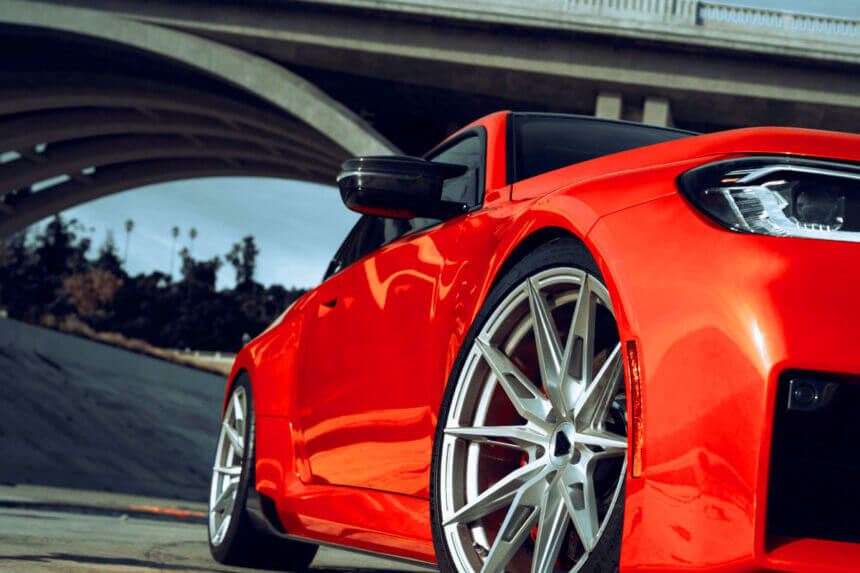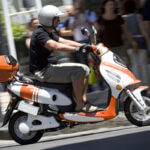Custom drilled wheels are wheel blanks that get precisely drilled with specific bolt patterns to fit vehicles that need non-standard wheel configurations. This wheel modification process allows car and truck owners to install wheels that wouldn’t normally fit their vehicle’s existing lug pattern. The drilling creates new mounting points while maintaining the wheel’s structural integrity and safety when done correctly by experienced professionals using precision engineering techniques.
- How Custom Drilled Wheels Work: Bolt Patterns, Materials, and Processes
- Common Bolt Pattern Mistakes & How to Measure Correctly
- Materials & Alloy Types — What Holds Up After Drilling
- Pros and Cons: Engineering, Safety, and Fitment Trade-Offs
- Estimating Costs: What Affects Price Locally and Globally
- Choosing a Reliable Shop or Service: Quality, Tools, and Certifications
- Long-Term Maintenance: Care, Corrosion, and Durability
- Legal, Warranty, and Regulatory Factors for Custom Drilled Wheels
How Custom Drilled Wheels Work: Bolt Patterns, Materials, and Processes
Professional wheel drilling starts with measuring your vehicle’s exact bolt pattern and hub bore requirements. Modern shops use CNC machining equipment to create precise holes that match your vehicle’s specifications, representing a significant advancement in automotive customization.
The process begins with selecting appropriate wheel blanks made from quality materials. California Wheels specializes in blank wheels ready to be drilled and machined to fit customized applications, with custom wheel machining and drilling services offering automotive enthusiasts a personalized touch to enhance their vehicle’s aesthetics and performance. Most shops use alloy wheels or forged wheels because these materials handle fabrication better than cheaper alternatives. The drilling equipment removes material in exact locations while maintaining the wheel’s load rating and structural strength.
3D-forged wheels use advanced CNC machining to create intricate, high-strength designs that weigh less and look sharper. This technology, which traces its etymology to the Old English “thyrlian” meaning to pierce, reduces human error and creates perfectly aligned bolt holes every time. The specialized craftsmanship required for this process involves both the traditional meaning of drilling (boring holes) and the modern interpretation of drilling as rigorous training in precision techniques.
Common Bolt Pattern Mistakes & How to Measure Correctly
Many people confuse bolt circle diameter (PCD) with simple hole-to-hole measurements. The correct method measures from the center of one bolt hole to the center of the opposite hole on even-numbered patterns, or uses specific geometry for odd-numbered patterns like 5-bolt wheels.
Professional shops use specialized bolt circle gauges and digital calipers for precise measurements. Understanding this process is essential for safety and performance. Tool to measure the bolt pattern of vehicle wheels. Wheel bolt patterns rely on measurement from the center of the bolt hole. Wrong measurements lead to wheels that don’t fit properly, creating dangerous driving conditions and potential wheel failure.
Materials & Alloy Types — What Holds Up After Drilling
Cast alloy wheels offer the best balance of cost and durability for custom wheel drilling. Forged wheels provide maximum strength but cost significantly more than standard factory wheels. Steel wheels are rarely used for custom drilling because they’re heavy and offer limited style options.
Carbon fiber technology has completely changed the custom wheel game for 2026, with hybrid-tech wheels emerging as the perfect marriage of lightweight materials and proven strength. The drilling process slightly reduces material thickness around each hole, so starting with quality metal is crucial. Wheels made from inferior materials may develop stress cracks around the drilled holes over time, especially under heavy loads or extreme driving conditions.
Pros and Cons: Engineering, Safety, and Fitment Trade-Offs
Custom machined wheels solve fitment problems when you can’t find wheels in your exact bolt pattern. This opens up thousands of wheel style options that wouldn’t normally fit your vehicle, offering a superior alternative to standard OEM wheels. You get perfect offset and styling choices without compromising on safety.
The main advantages include access to premium wheel brands, better aftermarket selection, and the ability to match specific vehicle requirements. Modular wheels—with swappable lips, barrels, and centers—allow endless visual combinations without buying a new set. Custom drilling also allows for unique fitment styles like flush, poke, or tucked appearances that enhance your vehicle’s look.
However, CNC drilled wheels do have drawbacks. The process permanently alters the wheel structure and typically voids manufacturer warranties. SAE J2530 defines voluntary performance tests widely used by reputable brands to validate strength and durability. Not all wheels pass these tests after modification.
Drilling also adds cost and time to your wheel purchase. You’re dependent on the shop’s skill level and equipment quality. Poor drilling jobs can create safety hazards including wheel failure, lug nut problems, and handling issues that affect vehicle control.
Estimating Costs: What Affects Price Locally and Globally
High-end, customized rims can cost more than $1,000 each. In addition to buying your rims, you’ll have to pay roughly $80 to $200 to have them installed. Precision drilled wheels typically add $50-150 per wheel to the base wheel price, depending on complexity and location.
The global automotive wheel market is projected to grow from $14.5 billion in 2024 to $18.11 billion by 2033 (CAGR: 2.5%), driven by EV Adoption: Lightweight wheels improve battery efficiency and range, and Customization: Retro designs, hybrid finishes, and oversized wheels (22–23 inches) dominate aftermarket trends. Several factors affect drilling costs beyond basic customization needs.
Wheel size matters – larger wheels require more precise equipment and take longer to drill. The number of holes impacts price since 8-lug patterns take more time than 5-lug patterns. Hub bore modifications add extra charges when the center hole needs enlarging for proper fitment.
Material type influences pricing too. Forged wheels cost more to drill because they’re harder than cast wheels. Special finishes like chrome or powder coating may require extra care during drilling, increasing labor costs. Some shops now offer boutique drilling services for ultra-premium applications.
Geographic location creates significant price differences. Major metropolitan areas typically charge more due to higher overhead costs. Rural shops might offer lower prices but may lack the latest CNC equipment needed for precision work.
Steel Wheels: These wheels are usually the most affordable option, costing anywhere from $50 to $200 per wheel, while Premium and Custom Wheels: Custom designs, specialty materials like carbon fiber, or wheels designed for high-performance vehicles can start at $500 and go up to several thousand dollars per wheel.
Choosing a Reliable Shop or Service: Quality, Tools, and Certifications
Look for shops with modern CNC machining centers and digital measuring equipment. One of the key benefits of custom wheel machining is the ability to modify wheels to fit your vehicle even if they don’t make the specific fit for your car. Quality shops invest in proper tooling because precision drilling requires specialized equipment, not unlike the rigorous training (another meaning of “drilling”) required for technicians to master these techniques.
Fully personalized etching and laser engraving options are becoming standard for premium clients. Ask about their experience with your specific vehicle type. Truck wheels require different techniques than passenger car wheels due to higher load ratings and thicker materials. Shops should understand DOT requirements and safety standards for your vehicle category.
Check for customer reviews and examples of previous work. Reliable shops provide fitment guarantees and stand behind their drilling quality. They should explain the process clearly and discuss any limitations or risks specific to your wheel choice. Bespoke wheels require particularly careful attention to detail and customer communication.
Professional shops maintain clean work environments and follow safety protocols. They use proper torque specifications during installation and provide detailed instructions for ongoing maintenance. Avoid shops that rush the work or can’t explain their drilling process clearly.
Long-Term Maintenance: Care, Corrosion, and Durability
Custom wheel systems require regular inspection around the bolt holes for signs of stress or cracking. Check for corrosion especially in areas with road salt or high humidity. The drilling process exposes fresh metal that’s more susceptible to rust than factory-finished surfaces.
Use proper lug nut torque specifications during wheel installation and re-torque after the first 100 miles. Incorrect torque can cause elongation of the drilled holes or stress cracking around the mounting points.
Elongation from over-torquing or uneven torquing can happen when under-trained mechanics use air-powered tools. Always follow manufacturer torque specifications and use a calibrated torque wrench for wheel packages.
Clean drilled holes regularly to prevent debris buildup that could affect wheel balance or cause mounting problems. Apply anti-seize compound to lug bolts in areas prone to corrosion, but avoid getting compound on wheel surfaces where it could attract dirt.
Monitor wheel balance more frequently than standard wheels. The drilling process can slightly alter weight distribution, potentially requiring more frequent balancing services to maintain smooth operation.
Legal, Warranty, and Regulatory Factors for Custom Drilled Wheels
No US federal performance tests are mandated for aftermarket wheels; DOT requires markings and certain dimensions, not strength testing. However, wheels must still meet basic safety requirements for road use, distinguishing aftermarket customization from unsafe modifications.
Custom drilling typically voids manufacturer warranties since you’re modifying the original design. Some wheel companies specifically exclude drilled wheels from warranty coverage, even if the drilling was done professionally through precision engineering processes.
Insurance implications vary by provider and location. Most standard auto insurance policies don’t specifically exclude modified wheels, but you should verify coverage before modification. Some insurers require documentation showing the work was done professionally and meets safety standards.
Use at least fifty percent of the heaviest GAWR per wheel. Example GAWR 3000 lb means a 1500 lb minimum wheel rating, with extra margin for towing or off road use. This ensures adequate safety margin for your vehicle’s weight requirements.
Region-Specific Considerations
Different countries and states have varying requirements for wheel modifications. Some jurisdictions require engineering certificates for modified wheels, especially on commercial vehicles. Research local laws before proceeding with custom drilling.
Vehicle inspection requirements also vary. Some areas specifically check wheel condition and mounting during safety inspections. Keep documentation of professional drilling work to satisfy inspection requirements.
Effect on Insurance & Vehicle Inspections
Maintain records of custom drilling work including shop certifications, load rating documentation, and installation procedures. This paperwork helps during insurance claims or vehicle inspections where modified components might be questioned.
Consider taking photos of the finished installation showing proper fitment and professional workmanship. This documentation can be valuable if questions arise later about the modification’s safety or legality.
Bottom Line: Custom drilled wheels offer excellent solutions for unique fitment needs when done professionally with quality materials and proper safety margins. The trend momentum really picked up steam during 2025, with luxury brands like Ferrari, McLaren, and Porsche setting the pace for wheel styles worldwide, while advanced manufacturing has stepped up too, with 3D-forged wheels using precise CNC machining. Choose experienced shops, maintain proper documentation, and follow regular maintenance schedules to ensure long-term safety and performance. While costs run higher than standard wheels, the expanded style options and perfect fitment often justify the investment for serious automotive enthusiasts.
Key Points for Readers:
- Safety First: Always verify load ratings and use shops with proper CNC equipment and experience with your vehicle type.
- Cost Planning: Budget $50-150 per wheel for drilling costs plus base wheel prices, with premium materials and complex patterns costing more.
- Documentation Matters: Keep records of professional work, load ratings, and installation procedures for insurance and inspection purposes.
- Regular Maintenance: Inspect drilled holes regularly for stress cracks and maintain proper torque specifications throughout the wheel’s life.
- Legal Compliance: Research local regulations and insurance requirements before modification, as rules vary significantly by location and vehicle type.






